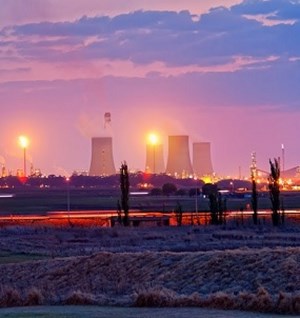Nigerian President advised to sell state oil assets to boost revenue, production
(Bloomberg) – Nigeria’s state energy company should sell off assets including stakes in oil blocks to raise billions of dollars, a report prepared for the country’s new president proposes.
The Nigerian National Petroleum Co. should become a minority shareholder in projects it currently controls, potentially generating more than $17 billion by the end of the decade, according to the study by a committee that advised President Bola Tinubu ahead of his inauguration last month.
If adopted, the recommendations would alter the NNPC’s strategy of holding majority stakes in oil and gas joint ventures with majors such as Shell Plc, and local producers that account for about a third of Nigeria’s crude output.
It could also see the NNPC shift away from its expansionary path pursued after it was transformed into a fully commercial venture under Tinubu’s predecessor, Muhammadu Buhari. During that period, it bought operating stakes in two blocks from Chevron Corp. and attempted to take over four permits from ExxonMobil Corp. by blocking a sale to Seplat Energy Plc.
The state-owned firm also acquired a 20% interest in a 650,000 barrel-a-day oil refinery built by Africa’s richest person, Aliko Dangote, and awarded more than $2 billion in contracts to revamp its own refining facilities that were built decades ago but are inoperative and in various stages of rehabilitation.
NNPC should “sell down interests in JVs to a minority position” and reduce its holdings in refineries, the report said. It recommended the new government “head-hunt competent, tested, reform-focused leaders” to run the company.
International oil giants have been offloading assets to local players for more than a decade. That trend is accelerating, as the likes of Shell and Exxon Mobil look to sell the rest of their onshore and shallow water portfolios to focus on deepwater projects.
Tripling oil production
A sale of NNPC’s assets would help Tinubu meet an ambitious campaign pledge to nearly triple oil production to 4 MMbpd by 2030, according to the committee’s report, which was confirmed by the presidency. Nigeria currently produces about 1.43 MMbpd, well below its full capacity due to pipeline theft, vandalism and declining investments.
Committee members included Austin Avuru, the founder and former chief executive officer of Seplat, and Abdulrazaq Isa, chairman of local energy firm Waltersmith Petroman Oil Ltd. Avuru declined to comment and Isa didn’t respond to an email from Bloomberg.
In the short term, it also suggested the NNPC, which currently imports all of Nigeria’s gasoline requirements, should end contracts with international and local traders through which it swaps crude for fuel. Instead, private companies could enter the market, leaving the state firm to sell the daily allocation of 445,000 bbl of oil for much-needed foreign exchange, it said. Tinubu has already removed gasoline subsidies that cost the state more than $10 billion last year.
The new administration also wants to commercialize much more of Nigeria’s abundant reserves of natural gas for both the domestic and export markets. To do this, the report proposed deregulating the local pricing system and applying a tax holiday to undeveloped deposits.
Spokesmen for Tinubu and the NNPC didn’t respond to requests for comment.



